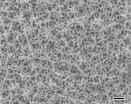(Press-News.org) New work by Ludwig-Maximilians-Universitaet (LMU) in Munich researchers demonstrates that macrophages can effectively substitute for so-called dendritic cells as primers of T-cell-dependent immune responses. Indeed, they stimulate a broader-based response.
The immune response, the process by which the adaptive immune system reacts to, and eliminates foreign substances and cells, depends on a complex interplay between several different cell types. So-called dendritic cells, which recognize and internalize invasive pathogens, play a crucial role in this process. Inside the dendritic cells, the invader's proteins, including those ("antigens") that distinguish it from host cells, are degraded into short fragments, and displayed on the cell surface in association with a specific binding protein. The foreign antigens exposed on dendritic cells in turn alerts another class of immune cells called T-cells to actively attack the invader, effectively inducing an immune response to that specific pathogen. A team led by Professor Thomas Brocker, Director of the Institute of Immunology at LMU, has now shown that macrophages that function as a first line of defense in the innate immune system can also present antigens to T-cells, thus revealing a previously unknown role for macrophages in the induction of adaptive immune responses. The results of the study are reported in the "Proceedings of the National Academy of Sciences" (PNAS).
"It has been assumed until now that the dendritic cells are considered to be essentially the only cell type responsible for antigen presentation in the immune system. We have now discovered that macrophages can also do this job. Not only that, in certain situations, they can be more effective than dendritic cells," says Thomas Brocker.
Exploiting the filtering role of macrophages
Dendritic cells present antigens to so-called cytotoxic T-lymphocytes (CTLs) if they have been directly infected, but they can also capture and display antigens from other cells. This type of indirect antigen presentation is referred to as cross-presentation. "So, theoretically, dendritic cells could be responsible for the induction of all CTL-based responses, regardless of whether they are themselves infected or not. But the significance of cross-presentation is hotly debated in the literature," says Brocker.
In the study, Brocker and his team used several antigens that were specifically targeted to and processed by macrophages, but could not be taken up directly by dendritic cells. They were able to demonstrate that each antigen nevertheless induces a normal immune response in a mouse model system, and even in a mouse strain that lacked dendritic cells altogether. Further experiments showed that the targeted macrophages were actually able to prime a more comprehensive immune reaction than cross-presenting dendritic cells. They activated T-cells specific for all antigen-binding sites (so-called epitopes) presented, whereas cross-presentation by dendritic cells stimulates only those T-cells that recognize immunodominant, i.e., the most effective, epitopes.
Macrophages are normally the first immune cells in the body that come into contact with invading pathogens. "Macrophages naturally function as filters; they gobble everything up that might be harmful to the organism. And our study shows that, in contrast to cross-priming dendritic cells, they are capable of producing and presenting all T-cell-priming epitopes we tested. Macrophages therefore induce a complete immune response. These observations indicate that the significance of cross-presentation by dendritic cells has been overrated," says Brocker.
The new findings are relevant for the development of immunization strategies. "Preclinical trials are already underway with vaccines that are designed to activate specific sets of dendritic cells. But the weak epitopes are important for a broadly directed immune response, because they can potentially recognize mutant variants of viruses, for instance. Cross-priming dendritic cells fail to induce weakly antigenic epitopes, as our study shows. Our results indicate that it may make more sense to manipulate macrophages directly, because they stimulate a wider-ranging immune response," says Brocker.
INFORMATION:
NEWPORT, Ore. - A team of scientists from the United States and Russia has documented the longest migration of a mammal ever recorded - a round-trip trek of nearly 14,000 miles by a whale identified as a critically endangered species that raises questions about its status.
The researchers used satellite-monitored tags to track three western North Pacific gray whales from their primary feeding ground off Russia's Sakhalin Island across the Pacific Ocean and down the West Coast of the United States to Baja, Mexico. One of the tagged whales, dubbed Varvara (which is Russian ...
Anti-fungal drug shows promise as potential new cancer treatment
A common anti-fungal treatment has joined the ranks of drugs that may be suitable for use in treating cancer, according to research from the Repurposing Drugs in Oncology (ReDO) project published in ecancermedicalscience.
The ReDO project is an international collaboration of anticancer researchers dedicated to promoting the cause of common medicines which may represent an untapped source of novel therapies for cancer.
In partnership with ecancer, the ReDO project is publishing a series of papers on drugs ...
Twitter users who post information about their personal health online might be considered by some to be "over-sharers," but new research led by the University of Arizona suggests that health-related tweets may have the potential to be helpful for hospitals.
Led by Sudha Ram, a UA professor of management information systems and computer science, and Dr. Yolande Pengetnze, a physician scientist at the Parkland Center for Clinical Innovation in Dallas, the researchers looked specifically at the chronic condition of asthma and how asthma-related tweets, analyzed alongside ...
WASHINGTON (April 15, 2015) -- The George Washington University (GW) Cancer Institute has finalized 45 core competency statements for oncology patient navigators, who have become critical members of the health care team. These competency statements were published in the Journal of Oncology Navigation and Survivorship and were created through literature review, focus group data analysis, expert review, and a national survey of oncology patient navigation stakeholders.
"Patient navigation is a rapidly growing health profession given new accreditation standards from the ...
Mathematical ideas and tools are often used to describe aspects of large macroscopic systems. Examples abound in areas as varied as finance to psychology. In a paper published last month in the SIAM Journal on Applied Mathematics, author Fabio Bagarello proposes mathematical models to analyze political decision-making. Using a dynamical approach which accounts for interactions between political parties and their constituents, the model tries to deduce whether parties should form coalitions under various circumstances.
"Mathematics is important in many aspects of social ...
Depression and type 2 diabetes mellitus were each associated with an increased risk for dementia and that risk was even greater among individuals diagnosed with both depression and diabetes compared with people who had neither condition, according to an article published online by JAMA Psychiatry.
Diabetes and major depression are common in Western populations and as many as 20 percent of people with type 2 diabetes mellitus also have depression.
Dimitry Davydow, M.D., M.P.H., of the University of Washington School of Medicine, Seattle, and coauthors examined the risk ...
Amsterdam, April 15, 2015 - In a recent study published in Optics Communications, scientists from Bar-Ilan University in Israel have presented a new technique that significantly reduces the halo effect that is generated when using multifocal (contact and intra-ocular) lenses and looking at bright point sources in dark conditions.
Presbyopia is a result of natural aging and stems from a gradual thickening and decrease in elasticity of the lens inside the eye. Corrective lenses used to address presbyopia often lead to a halo effect. This is basically a glow or color light ...
HOUSTON - (April 15, 2015) - A cobalt-based thin film serves double duty as a new catalyst that produces both hydrogen and oxygen from water to feed fuel cells, according to scientists at Rice University.
The inexpensive, highly porous material invented by the Rice lab of chemist James Tour may have advantages as a catalyst for the production of hydrogen via water electrolysis. A single film far thinner than a hair can be used as both the anode and cathode in an electrolysis device.
The researchers led by Rice postdoctoral researcher Yang Yang reported their discovery ...
The slow implementation of the Chemical Facility Anti-Terrorism Standards (CFATS) in the USA as part of homeland security and anti-terrorism measures is leaving chemical plants vulnerable and putting at risk the safety of American citizens, according to research published in the International Journal of Critical Infrastructures.
Maria Rooijakkers and Abdul-Akeem Sadiq of the School of Public and Environmental Affairs, at Indiana University-Purdue University, in Indianapolis, explain that post-9/11 efforts to safeguard the chemical sector gave the Department of Homeland ...
WASHINGTON -- U.S. communities and federal agencies should more intentionally seek to create healthier communities during disaster preparation and recovery efforts - something that rarely happens now, says a new report from the Institute of Medicine. By adding a health "lens" to planning and recovery, a community can both mitigate the health damage caused by disasters and recover in ways that make the community healthier and more resilient than it was before.
"We have an opportunity to transform our response to devastating disasters into an effort to meaningfully enhance ...


